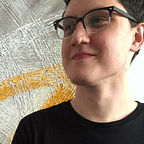Watching Charlotte Well’s ‘Aftersun’ (2022) Over and Over Again
When someone takes their own life, all the interactions we had with that person are forever altered. We look back over every moment, scouring our memory for meaning; we read old emails and texts; we wonder what we could’ve done differently, what we missed. And the wondering never ends. These experiences crowd in on us as we get older. Life is made mysterious in death. We realize that relationships are too complex to get our minds around. Because of this complexity, we become detectives, searching for clues.
But none of this has to do with Scottish director Charlotte Wells’ first movie, Aftersun — or at least, this is what I thought the first time I saw it. The movie was a nice but kind of slow meditation on a modest vacation in Turkey taken by a young father and his 11-year-old daughter in the ’90s. The film didn’t grab me the first time: it was not more the sum of its parts, which were keenly observed moments in a familiar coming-of-age story, mixed with some innocuous bonding time between father and daughter. Nice enough, but nothing to write home about.
Except the ending didn’t fit. It was too intense, too overwhelming and opaque. (Mild spoilers here:) A father and daughter, across time, dancing, fighting; an otherworldly rendition of Queen and Bowie’s “Under Pressure”; a replay of eroded digital camera footage we’d already seen in the film; a metaphorical turn into darkness. How did this ending fit with the story that preceded it? I felt like the 11-year-old, Sophie, grasping at straws to understand something about her father, looking for something more than what was explicitly shown.
It only occurred to me a day or two later what the film was probably about — a final meeting. Something we know that we all face, sooner or later, with the ones we love. The beginning of endless revisiting. And a grown daughter, now around the age that her father was on that not-so-innocous vacation, looking back after having her own child, wondering what kind of parent she will be. The movie shows that her father Calum was a great dad. And she was a great daughter. They wanted to be together. They cared for each other. But they were inevitably separated by a gulf of understanding and experience. Where she is consoled by the thought of being always beneath the same sky, he is oppressed by the endlessness of it, the tiredness accumulating in his bones.
The movie paints its motifs in effortless metaphors: the parasailers that ubiquitously pepper the sky above their motel, for example. The film tells us nothing explicitly, but we gather that, for the young Sophie, parasailing runs parallel to the flirtations and friendships she is exploring, her sudden turn away from childish things toward an adult world of deepening meanings and possibilities (including the possibility of same-sex relationship, which she glimpses, possibly for the first time, via two men kissing romantically in a hallway late at night). For her father Calum, however, we sense that parasailing is a profoundly lonely activity. It represents what drives him to drink, to immerse himself in the ocean, and to counteract this tendency to float off into self-destruction via the focused, grounding movements of tai chi, meditation, and cathartic dance.
Every scene expands the meaning of this dynamic between father and daughter, love and loss. But its metaphors are not exact. They are not artistic constructions. The mystery of people and life’s meaning makes us perpetual detectives, in spite of ourselves. The film instigates this process of growth and separation in its audience, making us detectives too, searching for meaning in the slightest expression or tossed-off phrase. When Calum says that a Turkish rug he can’t afford but with which he is enamored carries a story, that its geometric symbols say something if we know how to read them, we know intuitively that this has something to do with the older Sophie watching the digital camera footage she recorded from this trip, years away from the experience but still carrying her father’s rug with her. Because even if, as the movie never confirms but we cannot help but intuit, Calum is dead and they never saw each other again after that mystical week together, we cannot help but feel our fathers live again in ourselves.
The young Sophie said that she felt like she had a home, a place where she belongs. As an adult, twenty years later, does she still feel like she has one? Or has she become, like Calum, like all of us adults with responsibilities we can’t quite live up to, just a bit out of place wherever we go? The R.E.M. song that Sophie sings (by herself) at karaoke, waiting for her dad to take the stage with her, doesn’t quite capture the film’s magical, joy-tinged sorrow. “Oh, life is bigger / It’s bigger than you, and you are not me / The lengths I will go to / The distance in your eyes / Oh no, I’ve said too much / I set it up.”
In life as it is, intertwined with death, this photo of love will never come fully into focus. But every detail is there.
